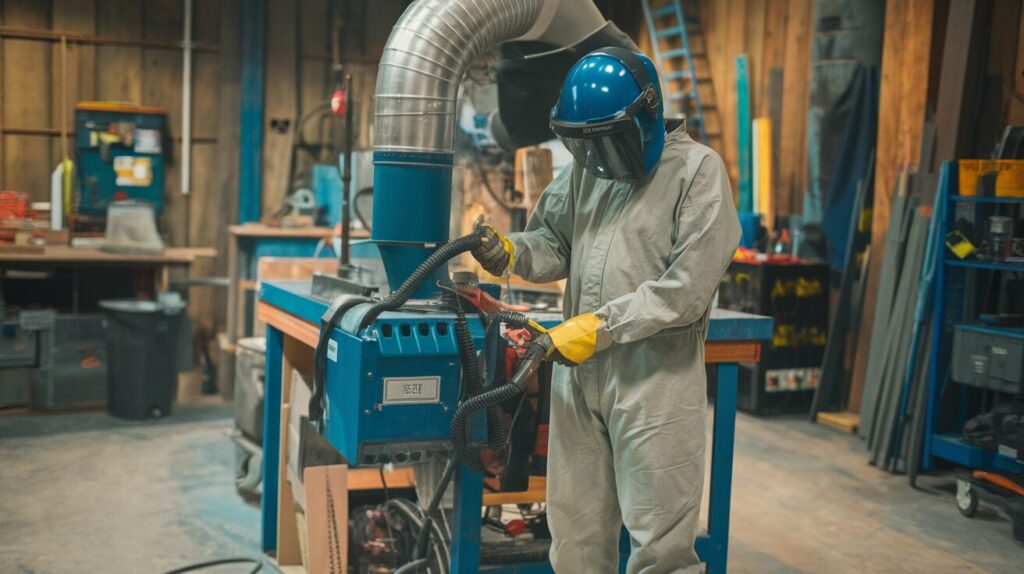Fume extractors can be pretty confusing to navigate, especially with so many choices on the market. These devices are responsible for preserving the air quality of workspaces so that the air is safe and comfortable to breathe in.
Choosing the right fume extractor depends on your circumstances and workspace needs. This guide discusses key elements to focus on when you make this critical selection.
What are Fume Extractors?
Fume extractors are devices typically used to pull or suck out hazardous fumes, smoke, and particles from the air. These tools, used in major industries like welding, electronics, and chemical processing, protect employees from hazardous, inhalable substances.
Due to its importance, many employers and factory owners frequently wonder how to choose fume extractor systems that help clean the air and protect workers from toxic fumes. A productive work environment contributes to people’s well-being and reduces health risks.
Assessing Workspace Needs
Before you choose a fume extractor, carefully evaluate your workspace. Consider the workspace size, materials used in the factory, and how often fumes or vapors are produced during factory work.
Compact extractors will be needed for smaller spaces, whereas larger areas will need bigger, more reliable systems. Choosing the right one based on your specific purpose is key to ensuring the system works well for your needs.
Identifying Possible Dangers
Hazards vary depending on the type of workplace. For example, welding areas emit fumes with metals and gases. Electronics manufacturing may emit soldering fumes. Identifying and outlining specific hazards is necessary before choosing an extractor.
This is because you must look for an extractor with effective filtration in the right areas. This facilitates effective fume removal.
Selecting Filter Type
Fume extractors are all about filters. Air traps like High-Efficiency Particulate Air (HEPA) filters can help filter tiny air particles. They are perfect in spaces with particulate matter. Activated carbon filters are a great choice for adsorbing gases and odors.
Selecting the right filter type is essential, as it enables the extractor to clean and purify the air according to the potential hazards your people face.
Considering Airflow Capacity
Airflow capacity is the amount or volume of air a fume extractor can process. This capacity, expressed in cubic feet per minute (CFM), tells you how quickly the device can cleanse the atmosphere.
Higher CFM ratings are appropriate where substantial fume generation is present, but a lower CFM rating works fine for smaller areas. Selecting an extractor with the correct airflow capacity is nonnegotiable.
Evaluating Noise Levels
Noise in any place can prevent a worker from concentrating or being productive. Fume extractors can be noisy, but you can choose a quieter model to minimize the impact on the work environment.
For this reason, it is essential to check the decibel (dB) rating before purchasing. Select a model that makes it comfortable for people within a workplace to work.
Considering Mobility and Flexibility
Portable fume extractors benefit some workspaces, primarily when tasks are not performed in one place. Portable models provide flexibility and versatility, allowing workers to move the extractor wherever extraction is needed.
Conversely, continuous or fixed systems may be more effective when fume-generating processes are not concentrated. They may also be used where all the fume-generating activities occur in small spaces.
Analyzing Maintenance Requirements
Routine maintenance is one of the most important factors in boosting the life and performance of fume extractors. These devices work best when the filters are regularly replaced, cleaned, and inspected. Owners must note the maintenance needs and prepare accordingly to ensure effective cleaning.
Investigating Energy Efficiency
Energy efficiency is vital to fume extractor selection. Extractors with suitable efficiency use less energy, saving money in the long run. Look for energy-saving models or appliances with energy certifications that protect the planet and are easier on your wallet.
Complying with Regulations
Regulations regarding workplace safety require companies to meet specific standards for air quality. Fume extractors must fulfill these requirements to be compliant. Following these regulations protects workers’ health and helps companies avoid legal problems.
Seeking Expert Advice
If you aren’t an expert in fume extractor selection, expert help can provide insights. Experts can share relevant recommendations. Their expertise allows you to select the safest and most effective fume extractor.
Conclusion
When selecting the right fume extractor, consider workspace requirements, potential hazards, filter types, etc. Understanding these aspects helps make informed decisions that improve workspace air quality and safety. By focusing on these points, you can create a healthy, harmonious environment for everyone. A reliable fume extractor ensures that workspaces are compliant, safe, and productive.

